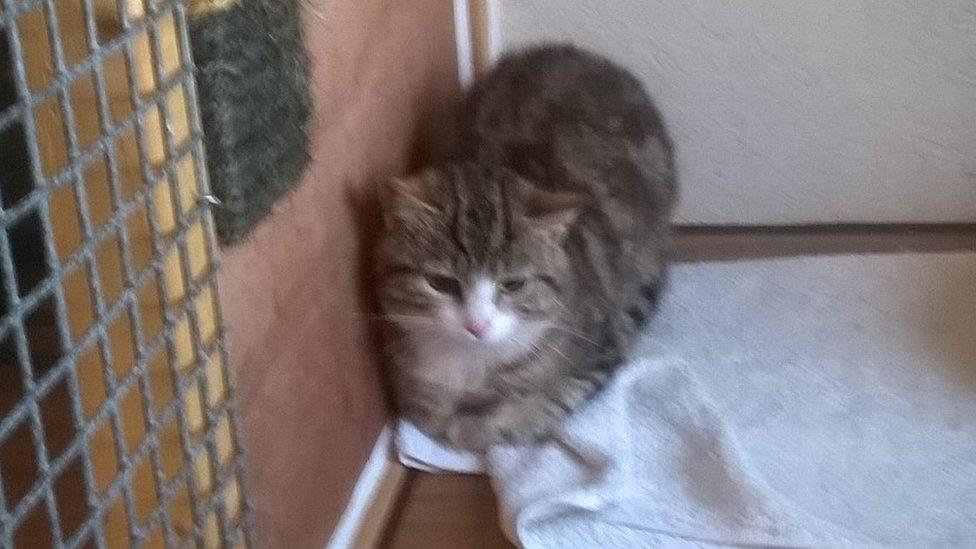Effort to tackle Hebridean isle's feral cat colony
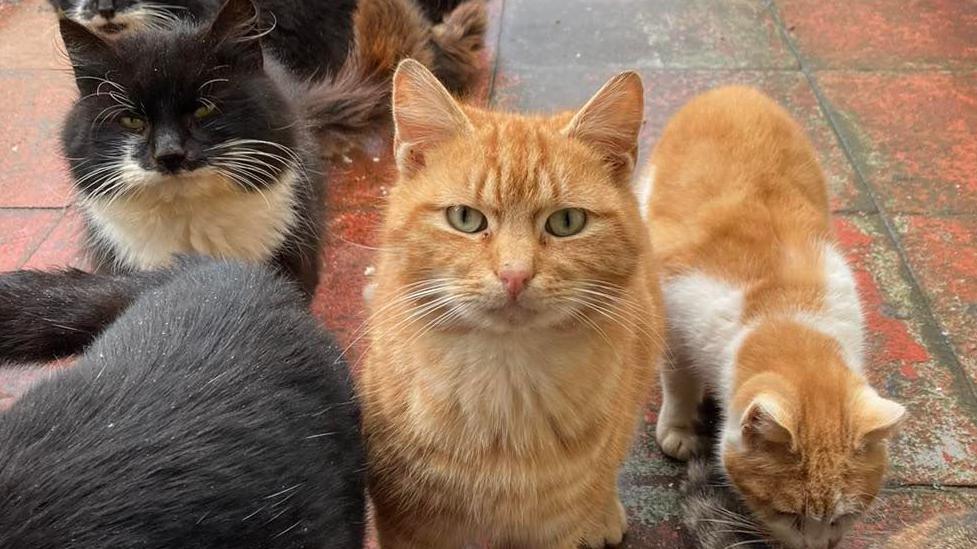
Barra has a feral colony of at least 20 cats
- Published
Volunteers are trying to get to grips with a colony of at least 20 feral cats in the Isle of Barra.
Not-for-profit organisation Western Isles Support for Cats and Kittens (Wisck) and its helpers have been trapping the cats and taking them to Stornoway in Lewis for vet checks and neutering.
Wisck hopes to eventually find homes for them.
It said there had been a problem with feral cats in Barra for a number of years, with many of the animals descendants of "barn cats" that were once kept on crofts to control mice and rats.
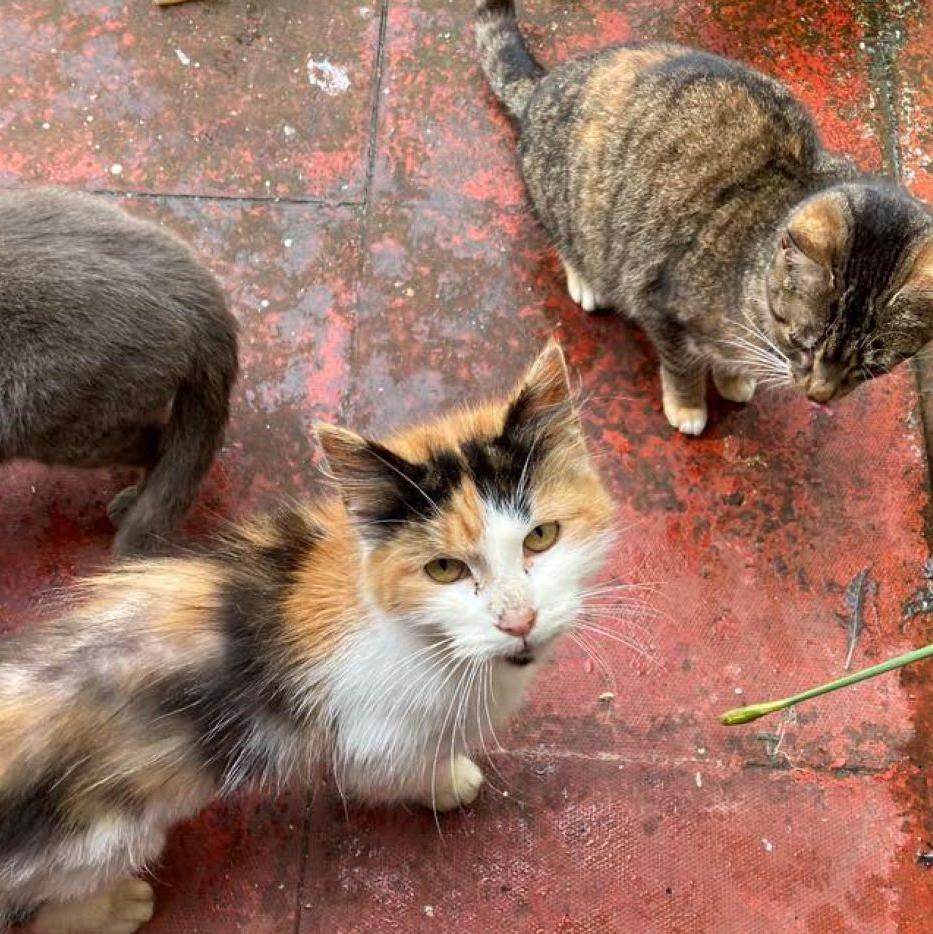
Wisck is trying to find homes for the cats
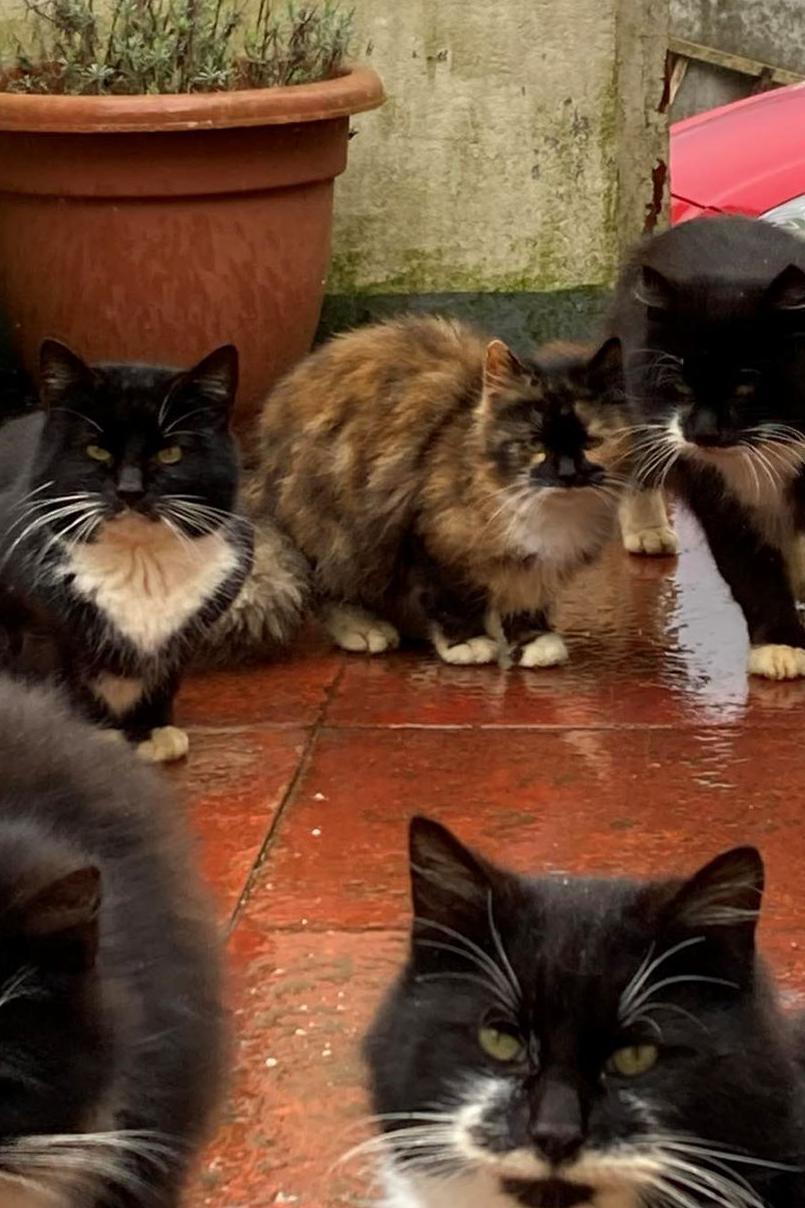
Karen Cowan, of Wisck, told BBC Naidheachdan: "You see 20 cats but there could be 30 because some don't appear at a house for food, but they are members of the same colony."
She added: "The breeding season for feral cats is April to September, depending on the weather and how well fed they are.
"Their number could triple by next winter."
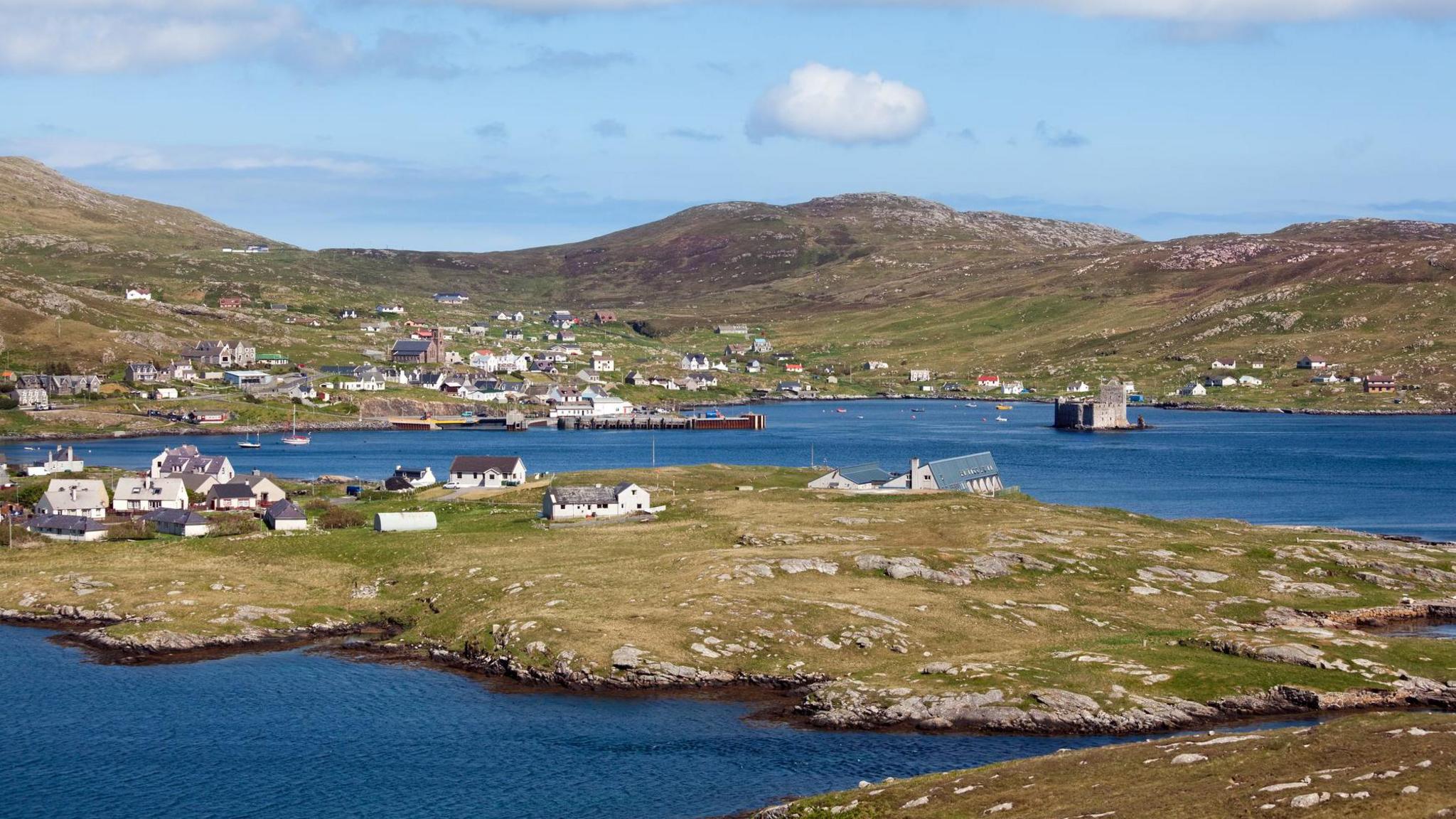
Volunteers in Barra and the wider island chain have been helping to catch and care for the feral cats

Ms Cowan said there were few rodents in Barra for the cats to catch and eat, meaning they then posed a risk to ground-nesting wild birds.
She said: "We need to protect the fragile eco-system as well as the welfare of the cats."
Public donations have helped cover some of the vet bills, which can run up to £200 to vaccinate and neuter just one cat.
Related topics
- Published14 June 2016
